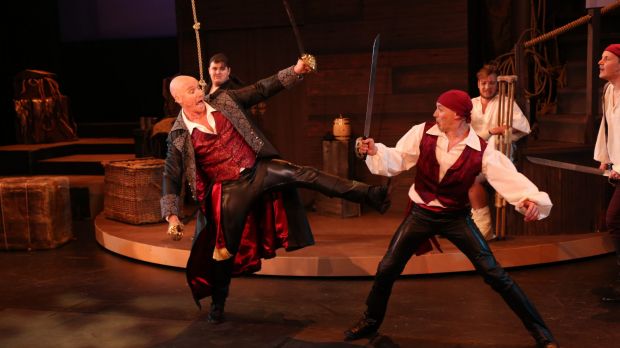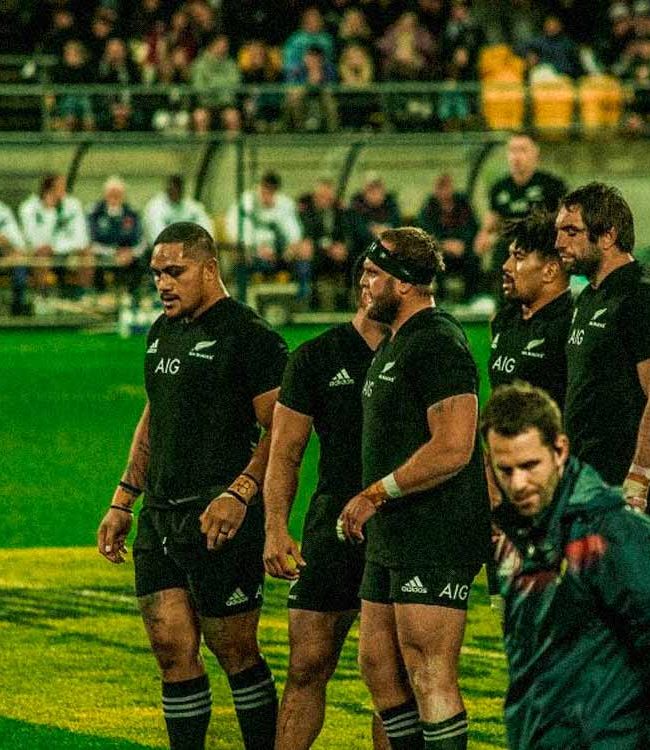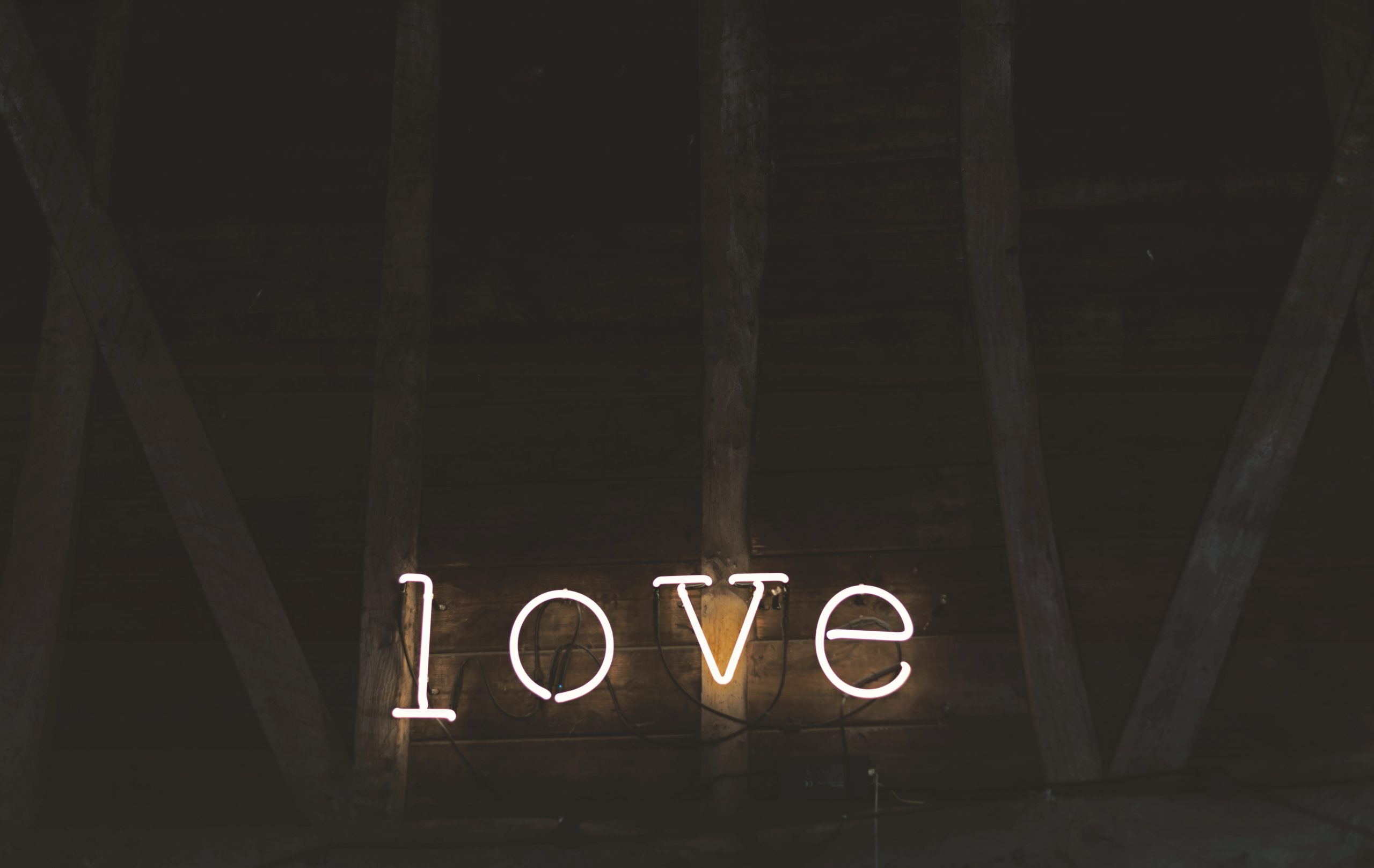“I was once a slave to an over-inflated ego that was driven by the idea that ‘real men’ have to be the toughest, fastest and the fittest to survive and I’d fought for a long time to try and maintain this false image” – Shane Horsburgh
DtL: Hi Shane – can you tell us a bit about yourself?
Shane: When I was 19, I followed in my father’s footsteps and joined the police force and for the next 17 years I enjoyed a career that would see me working in some dynamic and dangerous locations both in Australia and overseas.
Since leaving the police in 2006, I’ve expanded my horizons to become more inquisitive about what motivates humans to do what they do and this mindset has prompted me to move in directions I wouldn’t have thought possible 10 years ago. I think I was already predisposed to the idea of challenging myself but I am now unobstructed by any stereotypical views of what a ‘real man’ should be. From special operations to published author to leading roles in musical theatre; I love to challenge the masculinity stereotype.
I’ve been fortunate to have the opportunity of speaking to thousands of young men over the past 5 years about their ideas of masculinity and I’ve recently started a company to help transform workplace culture and to develop emotional intelligence at all levels of an organisation.
“There is no such thing as an ideal model of masculinity”
DtL: What inspired you to do your Ted Talk ‘Redefining Masculinity’?
Shane: It was about getting a message out to young people – particularly young men – that stereotypical views of manhood are just that…views. I was once a slave to an over-inflated ego that was driven by the idea that ‘real men’ have to be the toughest, fastest and the fittest to survive and I’d fought for a long time to try and maintain this false image. Sadly, this mindset often leads to dominating behaviours in men of all ages and can have a disastrous impact on how they develop and maintain their personal and professional relationships. Ironically, it was amongst the violence of the Iraqi war-zone that I began to question my idea of manhood and how a change in perspective could lead to a more peaceful existence. As I mentioned in the Ted Talk, meeting the Professor changed my perspective and – without trying to sound too dramatic – I think it saved my life. Similar to the Professors’ approach to our conversation, the Ted Talk was the perfect way to continue the message in a non-confrontational and non-preachy way. To merely tell my personal story – with all of its highs and lows – from which every person who watches will take the relevant pieces they need. I don’t own the message I gave in the talk. I was merely fulfilling an unspoken agreement to communicate what I had learned from the Professor in the hope that it would reach those who would need it the most.
“The male role modelling we see in our environment is geared toward dominating other people”
Let me be clear though, I’m not trying to push a ‘new’ way of manhood and I’m not suggesting that men need to follow a rigid path to improvement as there is no such thing as an ideal model of masculinity. What I do advocate is that all people – not just men – become more conscious of who they are now, what they stand for and how that impacts those around them. It’s about raising their awareness to a level which helps overcome the natural urge to fight against things without knowing why. In essence, it’s opening their eyes so they are not Fighting Blind against imaginary threats.
DtL: How have ideas of masculinity impacted you directly?
Shane: As I mentioned, my view of masculinity was based on false information that being a ‘real man’ was about being the toughest, the fastest and the fittest; a mindset that promoted a ‘win at all costs’ attitude to everything I did. When I look back, I think this was a major reason my marriage failed as I was unable to see (past my own ego) that my relationship was crumbling around me. I couldn’t hear the plea for me to take more of an interest in my family and the realisation that something was terribly wrong came too late, resulting in separation and divorce.
“My view of masculinity was based on false information that being a ‘real man’ was about being the toughest, the fastest and the fittest.”
Not surprisingly, this ‘alpha male’ approach to family and relationships is also reflected in other parts of the animal kingdom. There has been extensive research into primate behaviour which suggests that Chimpanzee alpha males who rely on aggression and dominance to gain and maintain their position in the group have far less time at the top. Conversely, it has been observed that male chimps who gain and maintain their alpha male position using collaboration and social skills enjoy a longer and a more peaceful existence as the leader of the group.
Thankfully, a different perspective on masculinity has enabled me to repair the relationship with my family and I consider my ex-wife to be one of my closest friends. Although the road to where we are now has had its difficult moments, we share a respectful and peaceful relationship that would not have been possible a few short years ago.
DtL: What is it like to be a man in 2016 and what needs to change?
Shane: What we see in movies, TV and in sport undoubtedly plays an integral role in shaping our perceptions of the world and these images can have a huge impact on our stereotypical view of manhood. With the advent of video gaming and the popularity of sports such as MMA, I would suggest that much of the male role modelling we see in our environment is geared toward dominating other people. In my view, this idea of domination is an outdated model to work from and flies in the face of societal expectation and research such as the Chimpanzee study I mentioned above. When I talk to young guys in schools, I always start by describing the macho world of special operations and to most of them, it’s real life Call of Duty. They love it. When I tell them I also sing, dance and act in musical theatre productions you can almost see their brains saying ‘huh…how does that work?’ It challenges their stereotypical view of manhood and I must admit…I get a kick out of watching it.
“‘Men don’t cry’ – what a load of BS!”
I think the quicker we can get rid of the idea that random perceptions of masculinity are somehow real is the first step toward changing the dominance mindset. It’ll be a huge generational shift but re-imagining masculinity is just one of many strategies needed to bring this idea to life; toward a future where all people are more conscious of their choices and the consequences of them.

Shane performing in the theatre
DtL: If you could go back in time, what one thing would you tell your younger self?
Shane: What a great question…there are so many things I’d like to revisit but I don’t know that I’d necessarily change anything. I’m quite philosophical in that regard. If I am going to narrow it to one thing I’d tell myself that life is a rollercoaster and unexpected things can – and will – happen. When things are going great, celebrate those moments but when life kicks you in the backside; pick yourself up, dust yourself off and learn from the experience. If you need help during the low points of the ‘ride’…get it! I guarantee that someone else has either been through, is going through, or is about to go through what you think is your ‘unique’ problem.
I know from the work I’ve been doing in the past few years that many men struggle with the idea of reaching out when they need help (I know I did) and it’s related to the outdated idea that ‘men don’t cry’. What a load of BS!
DtL: Our research found that boys are more than twice as likely to bully than girls. Why do you think that is?
Shane: When I think about how bullying relates to outdated ideas of masculinity, I see three interlinked triggers:
Learned behaviour – bullying has been learned at home as they have watched and participated in the power play between parents and siblings. Perhaps they have come from homes where physical and/or mental abuse is a normal part of family life and they are merely passing on this practice as a way of regaining some of the control they have lost in the home. In essence, their male role models are either non-existent or seriously flawed.
Insecurity – bullying becomes a weapon to overcome insecurity as intimidating others makes them feel powerful and relevant. They may often target boys they perceive as being weak, quiet or who have very few friends. Underneath the tough exterior, people that bully often struggle with anger and depression as their view of masculinity does not allow them to seek help.
Attention Seeking – bullying becomes a method of craving the attention they feel they deserve. Demeaning others to get a laugh often helps them to feel more important in a group.
“Bullying becomes a weapon to overcome insecurity”
DtL: What advice would you give to young boys today?
Shane: Be yourselves, not an image of what you think you should be!
We hear the word courage used frequently and it seems to be most often associated with sporting deeds or battlefield heroics. But, what about other forms of courage? I am constantly inspired by stories of people who have sought to think for themselves, being courageous enough to follow their own moral code instead of going with the crowd, even when it may have been dangerous to do so. I think our modern idea of courage has been distorted by Hollywood and the media and has only served to make men feel more inadequate as they try to compare themselves to unrealistic role models. To me, true courage is questioning or perhaps even rejecting our training and/or our upbringing in order to live consciously – eyes open – even if it scares us to death.
If you resist the pressure to do something your mates want you to do, that is courage.
If you express emotion openly when it is appropriate, that is courage.
If you choose to take a more proactive approach to your relationships, that is courage.
If you choose to look at the world as one of possibilities instead of competition, that is courage.
I will finish this with a quote from the Professor which I think says it all. “If you can learn to walk the fine line between being a hero and a coward…that is true courage”













